This webinar explores the experiences and needs of young fathers, including the unique challenges and distinct barriers young fathers face to participation in child and family services. The four presenters share practice and policy approaches to strengthen engagement of young fathers and support them with knowledge and skills to help them, their children, and their families thrive.
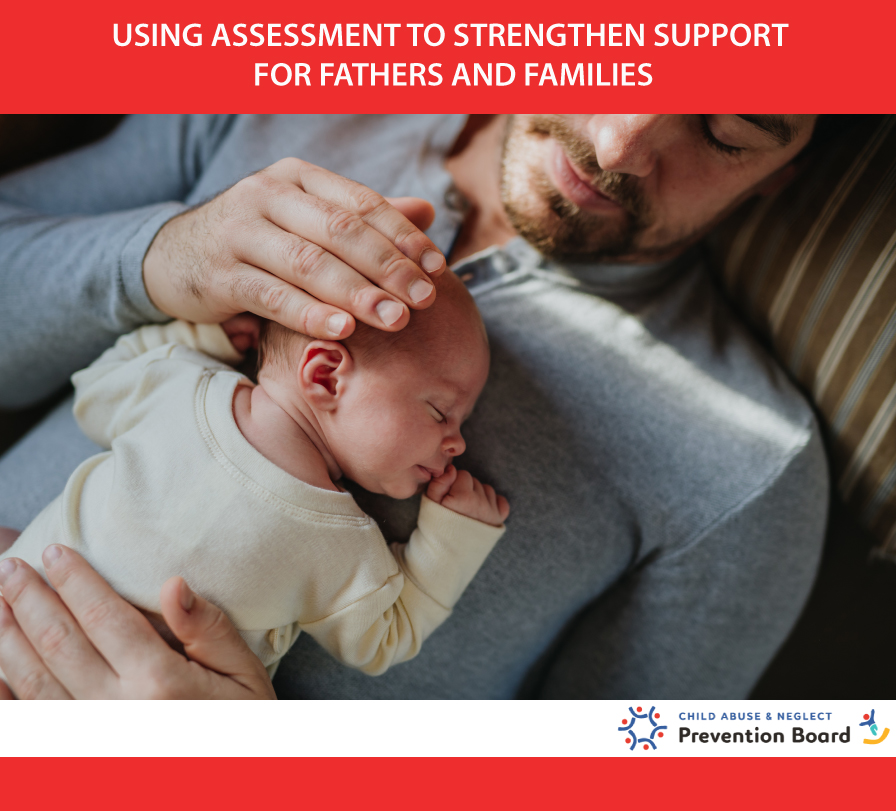
Using Assessment to Strengthen Support for Fathers and Families
In order to better engage fathers, support their well-being, and promote their children's health and development, organizations need to assess and understand their current level of father friendliness and the needs of the fathers and families they aim to serve. This webinar, focuses on assessment, including assessment of fathers' own well-being, engaging fathers in assessments of their children's health and development, and assessing organizational practices to include fathers.
Presenters include Dr. Tova Walsh, Sandra Rosenbaum School of Social Work, University of Wisconsin–Madison; Kevin Bremond Alameda County Fathers Corps Co-Founder and Program Administrator, First 5 Alameda County; David Comer, Health Project Supervisor – DAD Project, City of Milwaukee Health Department; Joshua Counceller, Manager of Operations/Project Manager, Ohio Commission on Fatherhood.
Click here to watch one-hour webinar ( November 12, 2024)
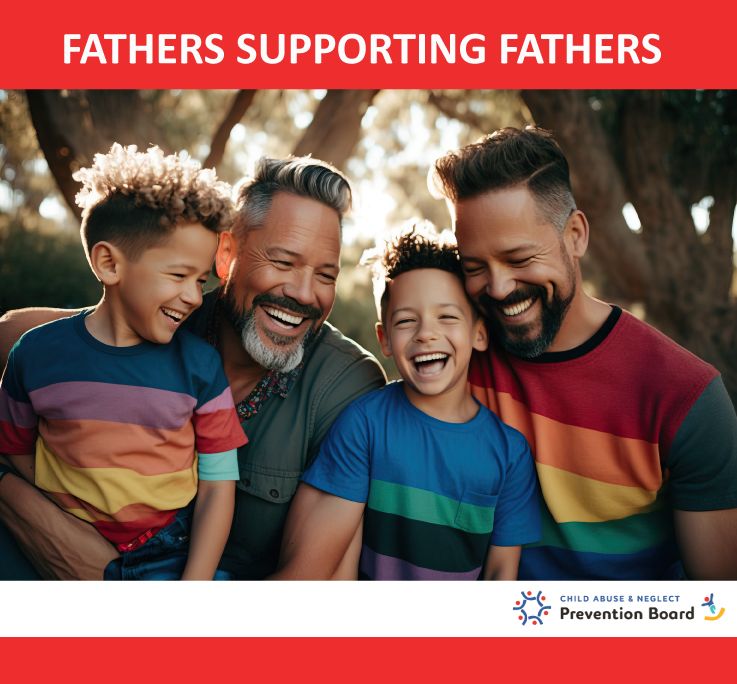 Fathers Supporting Fathers
Fathers Supporting Fathers
Organizations that seek to strengthen families and promote child well-being offer a variety of programming and resources to support parents. In this webinar, presenters focus on father-to-father programs and peer support groups as an important way for organizations to create space for fathers to ask questions, share concerns, and find the support they need.
Presenters include Dr. Tova Walsh, Sandra Rosenbaum School of Social Work, University of Wisconsin–Madison, Darryl Davidson, Milwaukee Fatherhood Coalition; Dr. Alan-Michael S. Graves, Good Plus Foundation; Eugene Crisler, Urban League of Greater Madison; and Joshua Zawadi, Melanated Daddy and Dad Doula.
Click here to watch one-hour webinar ( February 7, 2024)
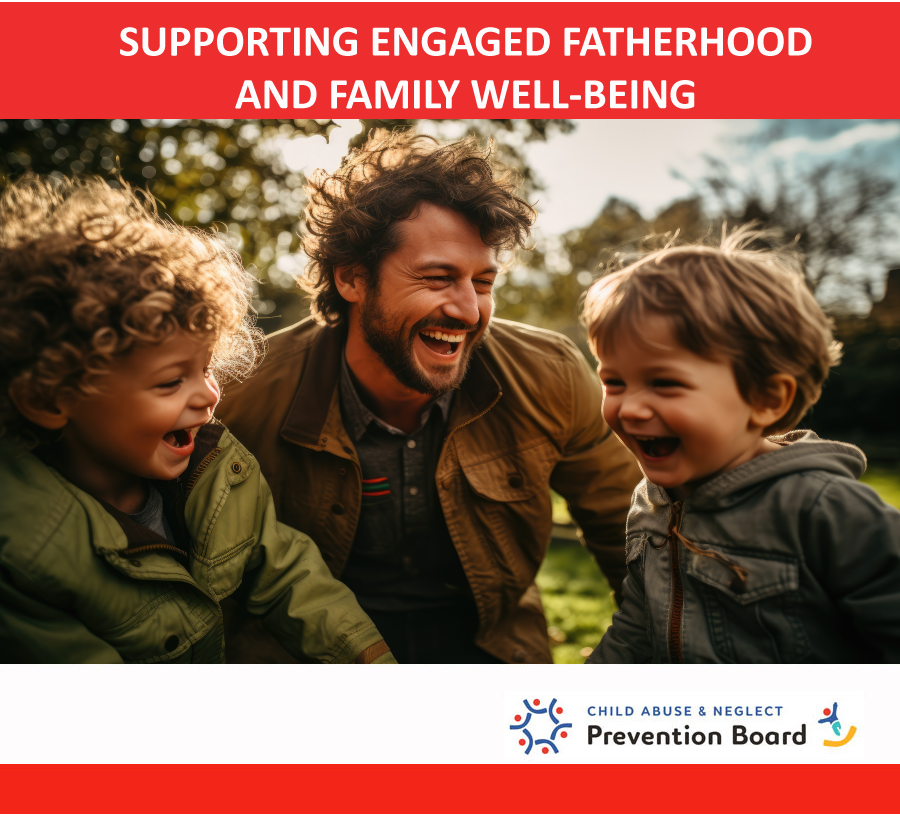
Supporting engaged fatherhood and family well-being: The role of policy from the local level to the federal level:
Policy decisions made at the federal, state, and local levels directly affect the wellbeing of fathers, their children and families. Policies may support the engagement of fathers with their children or make it more difficult for fathers to be the parents, partners, and providers they want to be. In this webinar, we will highlight research addressing fathers' circumstances and the opportunities and challenges they face and discuss implications for policymaking across levels of government. Panelists will offer their perspectives on, and share their experience with, the development of public policy to support engaged fatherhood and help families thrive. Presenters include Dr. Tova Walsh, Sandra Rosenbaum School of Social Work, University of Wisconsin–Madison, Dr. David Pate, Jr., School of Human Ecology, University of Wisconsin–Madison, Congressman Jimmy Gomez (CA-34), Founder and Chair of the Congressional Dads Caucus, and Darryl Davidson, Milwaukee Fatherhood Coalition.
Click here to watch one-hour webinar ( Nov 29, 2023)
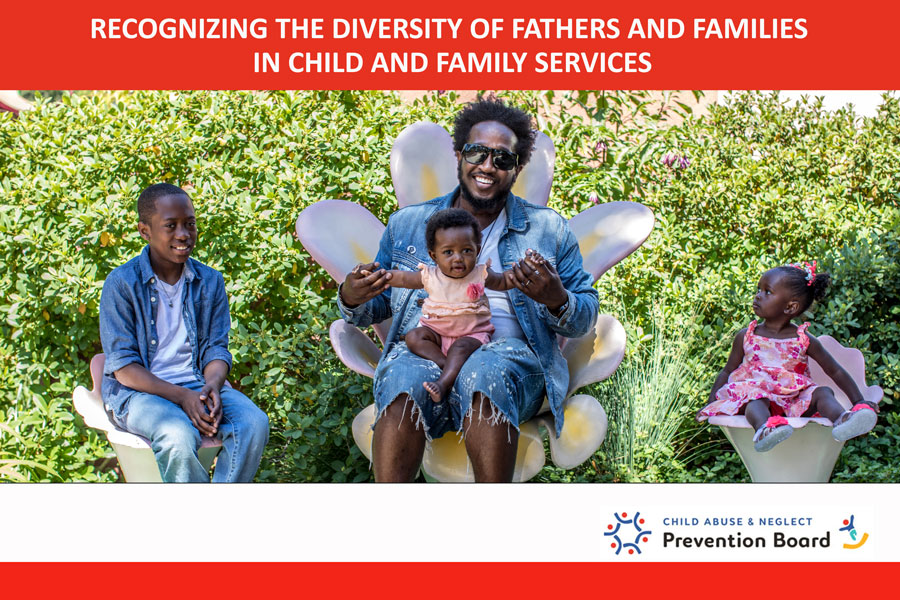
Recognizing the diversity of fathers and families in child and family services:
Father-inclusive practice requires recognition of the diversity of fathers and families. This webinar focuses on strategies to effectively serve Black fathers and Latino fathers in father-specific services and alongside mothers in services for children and families. Alignment of services with the cultural values and practices of client fathers and families is addressed as well as ways to promote a culture of inclusion that recognizes fathers' multiple intersecting identities. The webinar also explores how practitioners' own multiple intersecting identities influence work with fathers, and offers tips for facilitating groups for fathers, including for female facilitators. Presenters include Dr. Tova Walsh from the University of Wisconsin – Madison School of Social Work, Mr. Daryl Davidson of the Milwaukee Fatherhood Initiative, Dr. Alvin Thomas from the University of Wisconsin School of Social Ecology, and Dr. Cristina Wilson of the University of Connecticut School of Social Work.
Click here to watch one-hour webinar (March 1, 2023)
Expanding Inclusion of Fathers in Perinatal and Early Childhood Programs:
The influence of fathers on the lives and development of their children begins even before birth.
Father involvement favorably impacts maternal and child health in the prenatal period and beyond.
In this webinar, presenters will draw on their research and practice experience to discuss strategies to expand the inclusion of fathers in services during pregnancy, infancy, and early childhood. Fully engaging with all parents and caregivers is the best way to support the well-being of children. This webinar features Dr. Tova Walsh of the University of Wisconsin-Madison, Darryl Davidson from the Milwaukee Fatherhood Initiative, Calvin Williams of Lucian Families, and Dr. Kevin Gruenberg of Love, Dad.
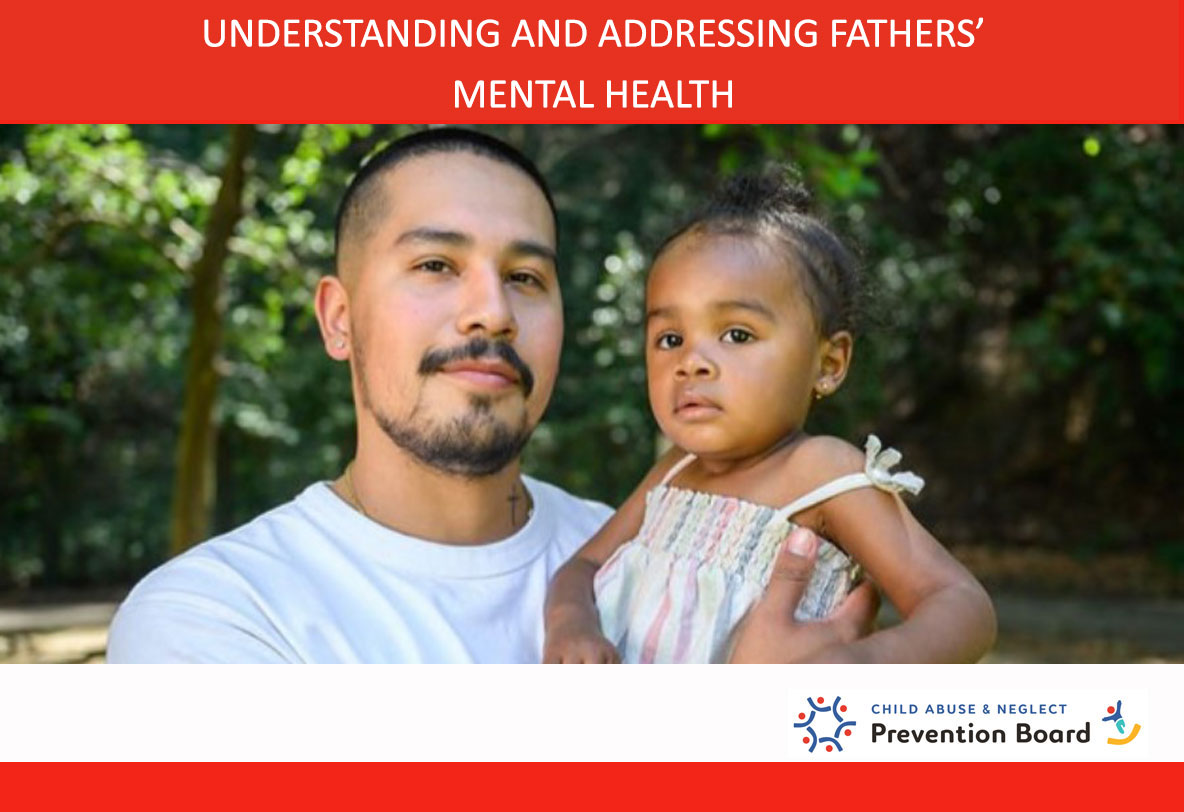
Fathers, like mothers, are vulnerable to depression in the period surrounding the birth of a new baby, and this depression can have serious consequences for children and families. In this webinar, presenters draw on their research and practice experience to discuss the prevalence and presentation of depression and other mental health challenges among new fathers, and the impacts of fathers’ mental health on parenting, family relationships, and child development.
Lack of awareness surrounding fathers’ mental health presents a barrier to fathers seeking treatment. The presenters also discuss the role of child and family services providers in helping fathers to recognize the symptoms of paternal depression and the need for support.
Click here to watch one-hour webinar ( April 29, 2022)
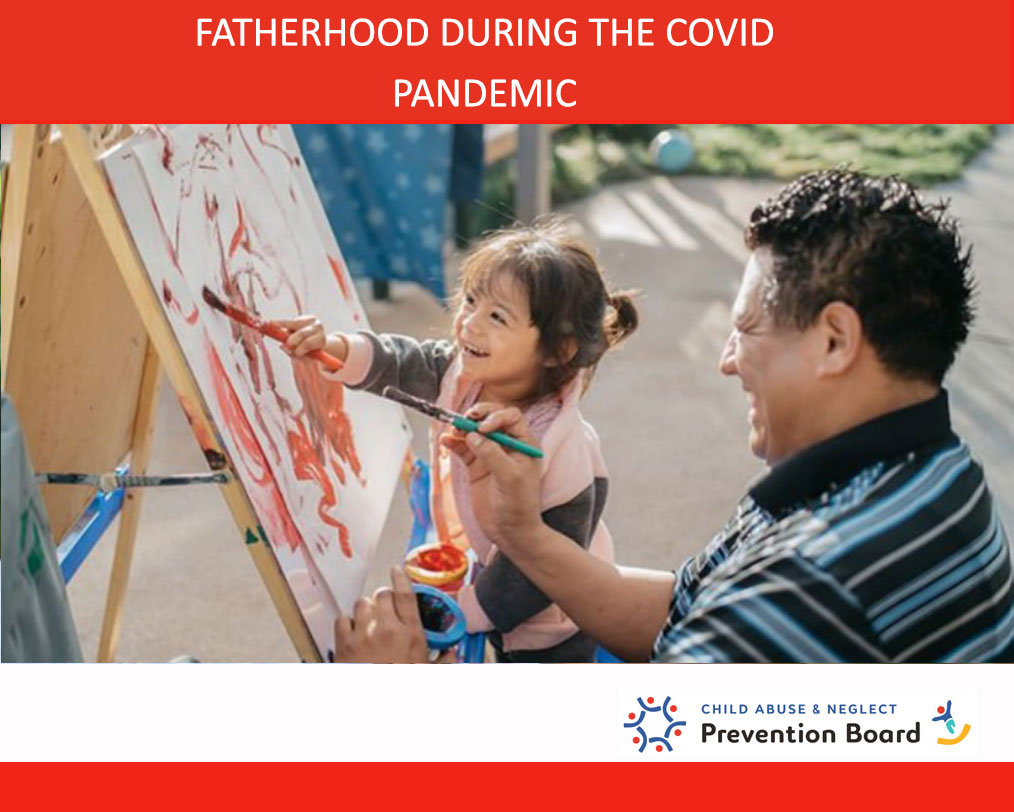
Fathers and families have experienced many changes and disruptions during the COVID-19 pandemic. Research demonstrates that the effects of these changes have been mixed—some fathers have been able to spend more time with their children, while others have had less opportunity to do so. This webinar explores some of the ways that fathers’ roles and responsibilities shifted during the pandemic. The webinar features Tova Walsh of the University of Wisconsin-Madison, Darryl Davidson of the City of Milwaukee, Derek Miller of the 4Dad Fatherhood Initiative in Kalamazoo, Michigan, and Shawna Lee of the University of Michigan. The presenters discuss father involvement in childcare and support for virtual learning, as well as ways that the pandemic heightened existing challenges for low-income and noncustodial fathers. Presenters offer insights from their practice and research, and highlight the supports that fathers may need to maintain positive changes or recover from negative impacts of the COVID-19 pandemic.
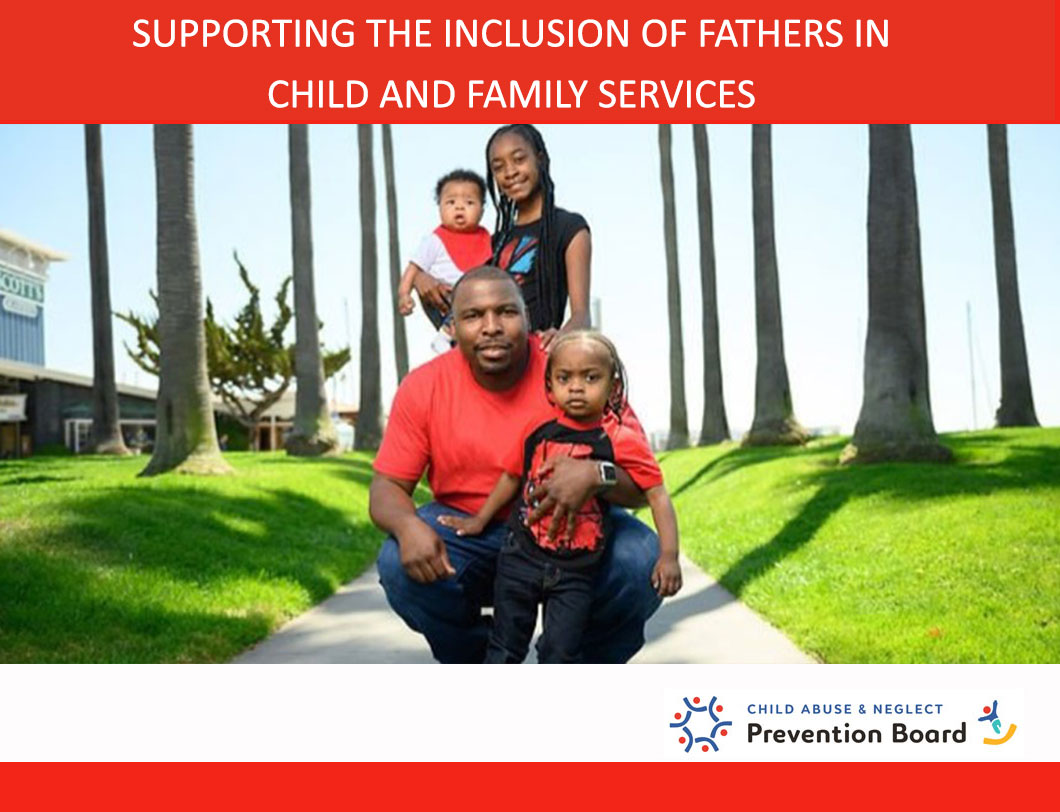
Child and family service organizations and providers can enhance outcomes for children and families by engaging fathers in services alongside mothers and other family members. In this recorded webinar Dr. Tova Walsh (University of Wisconsin- Madison, School of Social Work) explores the growing evidence base for programming and services that are responsive to the needs of fathers by focusing on father-inclusive programming. The webinar outlines strategies and techniques for supporting the inclusion of fathers that can be applied across a range of services and service delivery models, including infant and early childhood mental health, parenting support, healthcare, and education services. Guest presenters, Kaleem Caire (One City Schools, Madison, WI), Darryl Davidson (City of Milwaukee Fatherhood Initiative), and Dr. Nucha Isarowong (Barnard Center for Infant and Child Mental Health, University of Washington) highlight exemplary programs.
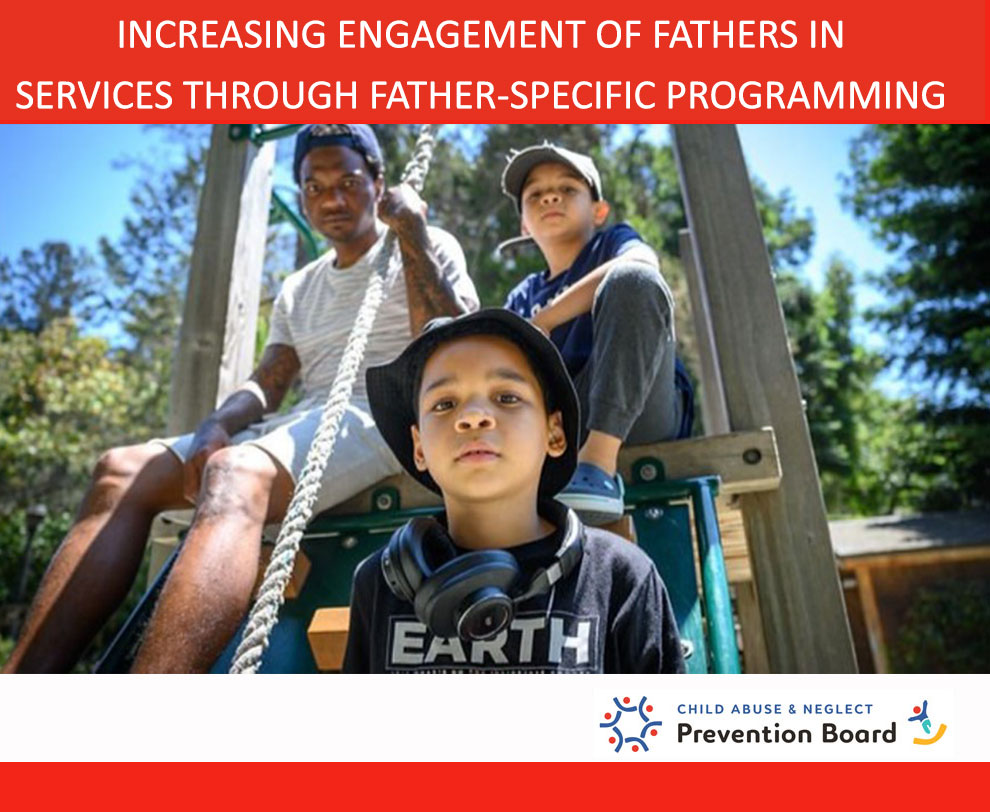
Father-specific parenting programs have been developed for groups including expectant and new fathers, young, low-income, and unmarried fathers. In this recorded webinar, the development, selection, and implementation of father-specific programming for different audiences were discussed.
The webinar highlighted several initiatives: peer-to-peer programming for new fathers through the African American Breastfeeding Network; Dads Matter, a new intervention designed to incorporate fathers into perinatal home visiting programs; and the Milwaukee Fatherhood Initiative, which offers father-focused legal, health, and education services, as well as parenting support, primarily to low-income African American fathers.
Click here to watch one-hour webinar (December 2, 2020)
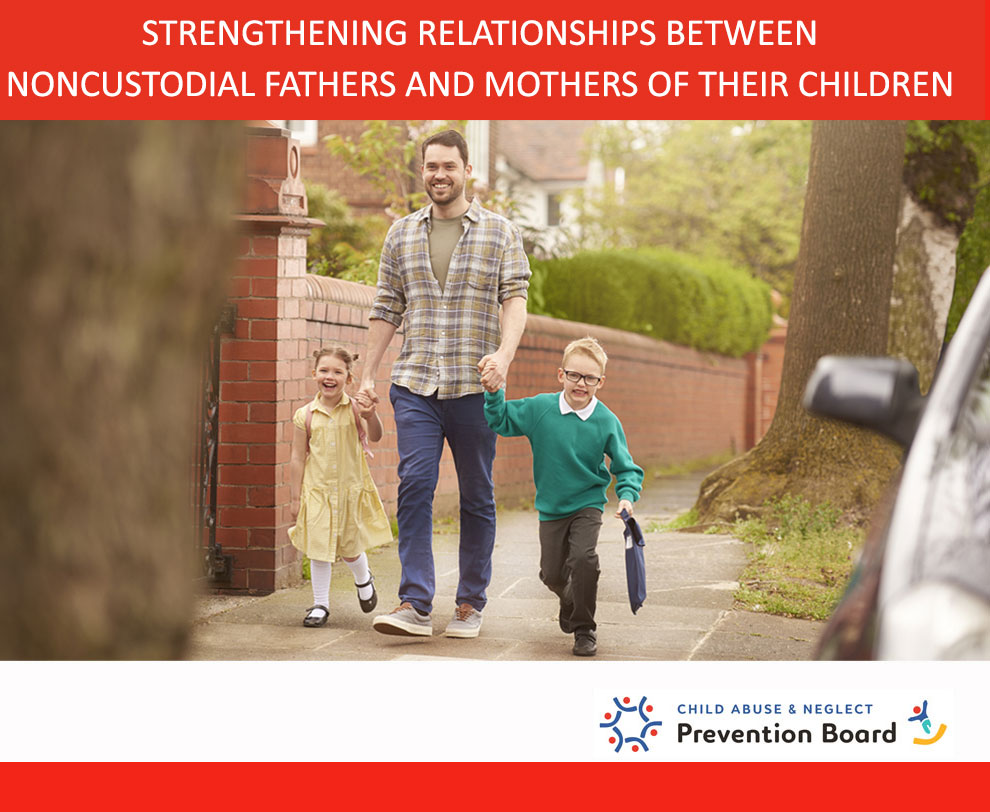
Being able to communicate and work together with the mother(s) of their child(ren) helps noncustodial fathers to stay connected to their children. When the relationship between parents is contentious, it may pose a barrier to fathers' full engagement in the lives of their children.
This webinar will provide insight into the dynamics of co-parenting relationships and noncustodial father involvement. The webinar will also address the ways that difficult dynamics between co-parents add challenges to the work of serving and supporting families, and offer strategies for service providers to support families more holistically by valuing and engaging mothers and fathers and promoting effective co-parenting relationships.
Click here to watch one-hour webinar (November 20, 2019)
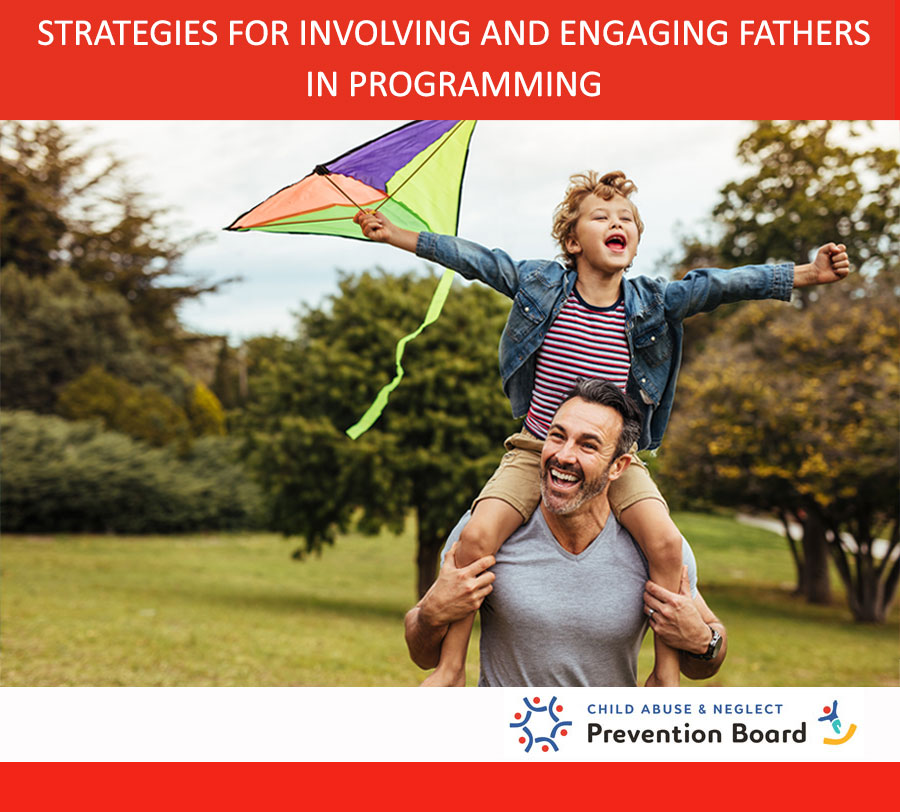
In this recorded webinar, Dr. Tova Walsh, University of Wisconsin–Madison School of Social Work, provides an overview of current research and discusses the development of outreach strategies and programming responsive to the needs of fathers.
Three family service providers share examples from their work: Lauren Zach, Indianhead Community Action Agency (Northwestern WI); Patrick Fendt, The Parenting Network (Milwaukee, WI); and Darryl Davidson, City of Milwaukee Health Department Men's Health Unit.
This webinar is supported in partnership with the Institute for Research on Poverty.
Click here to watch one-hour webinar (March 27, 2019)
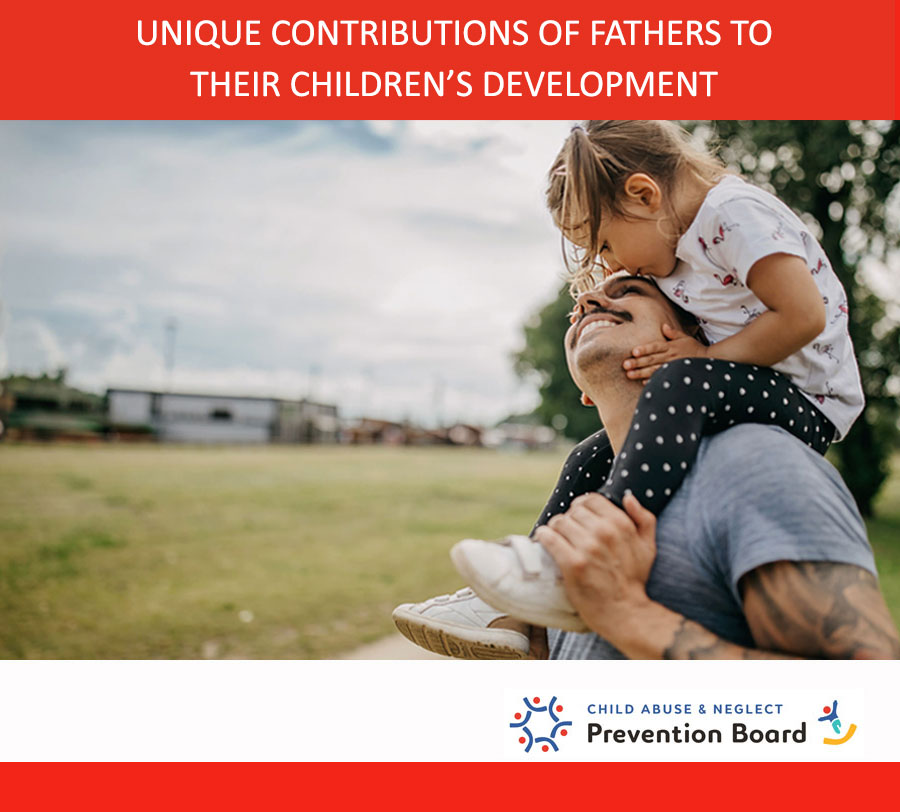
In this recorded webinar, Dr. Tova Walsh, University of Wisconsin–Madison School of Social Work, shares insights from the rapidly growing body of research on fathers’ influence on child development. Dr. Walsh highlights the important contribution of caring, involved fathers to the cognitive, social and emotional development of their children. By better understanding the distinct contributions of fathers, service providers can be more directed in supporting the strengths and skills and in communicating this knowledge with both fathers and mothers.
This webinar was supported in partnership with the Institute for Research on Poverty.
Click here to watch one-hour webinar (February 20, 2019)
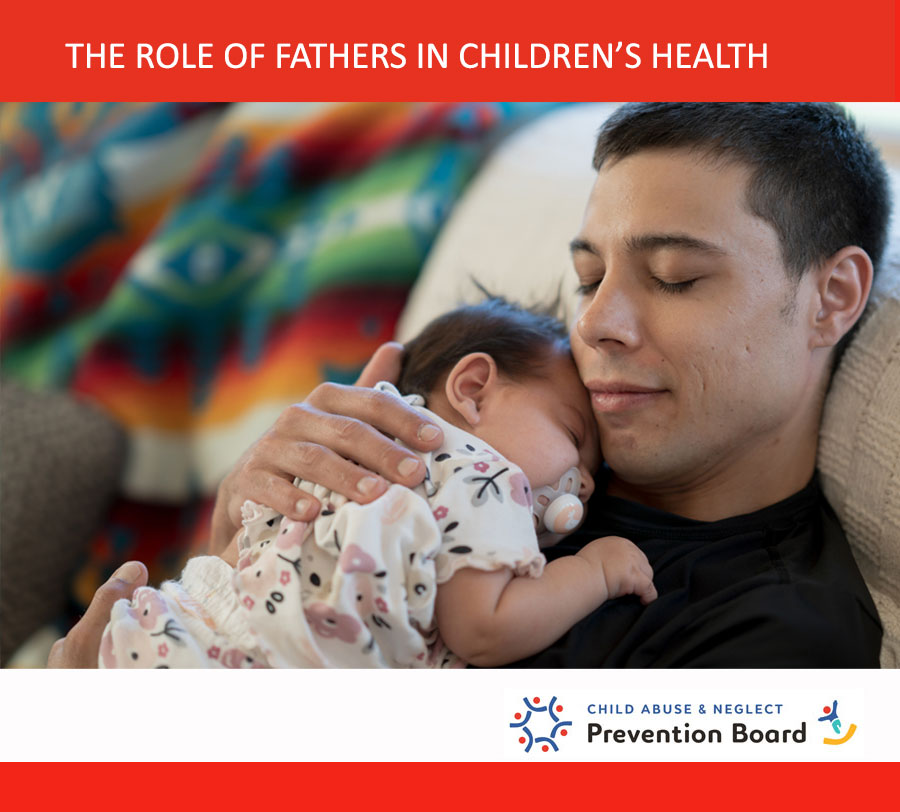
Fathers play an important role in children's health and development. Their health and health behavior influence the well-being of their children, partners, and fathers themselves.
This webinar provides insight into the role that fathers play in child and family health by addressing the experiences of fathers in prenatal and pediatric care settings, identifying engagement strategies for providers, highlighting strategies for promoting fathers' own physical and mental health and supporting fathers to model positive health behaviors for their children. Healthcare and child and family services providers can help promote optimal outcomes for children and families by involving and supporting all caregivers, including fathers.
Click here to watch the one-hour webinar (February 19, 2020)